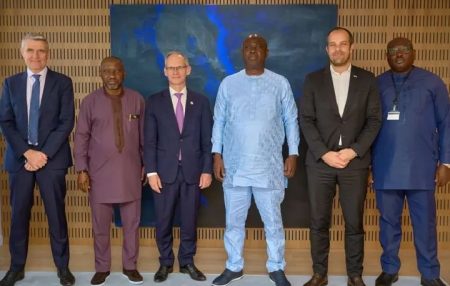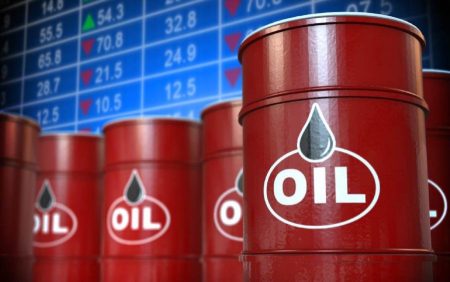 20 March 2014, Lagos – Shell Nigeria has said it is pushing forward with the Bonga South West and the Erha deepwater projects.
20 March 2014, Lagos – Shell Nigeria has said it is pushing forward with the Bonga South West and the Erha deepwater projects.
The Vice-President, Nigeria & Gabon Shell Upstream International, Mr. Markus Droll, said the company would take the final investment decision on the Bonga South West project by the end of 2014.
The Bonga South West project is an expansion of operations at Shell’s Bonga field which includes 19 new wells to be drilled at an expected cost of $12.35bn.
Droll said, “We are an oil and gas business, and our foremost expertise is to develop and operate oil and gas fields. Our commitment is to continue to bring the best expertise and technology to Nigeria, so that an efficient industry can continue to flourish.
“In deepwater, we are pushing forward to have the world-scale Bonga South West project FID ready by the end of 2014. We continue with a strong suite of infill drilling projects on the original Bonga FPSO, so that we can keep this facility full generating returns for partners and government alike.”
Shell Nigeria Exploration and Production Company began producing oil and gas from the Bonga field, Nigeria’s first deepwater oil discovery, in 2005. The deepwater field is located in the Oil Mining Lease 118.
Lying 120km offshore, the Bonga Floating Production Offshore vessel has the capacity to produce more than 250,000 barrels of oil a day and 150 million cubic feet of gas a day.
The 225,000 barrels per day capacity Bonga South West offshore project, which is also located on OML118, was discovered in 2001 with first oil scheduled for 2020.
Details of the projects prepared by the company show that the Bonga South West development plan will entail the construction of an FPSO vessel with a production capacity of 225,000 bpd, and two phases of drilling for a total of 44 wells – 22 producers and 22 water injectors.
It will also require the deployment of a subsea production system with 85 kilometres of pipe-in-pipe, 65 kilometres of umbilical, three water injection lines and four production loops.
Droll said Shell it would also invest $3.5bn Erha field.
“Similarly, with our operator partner ExxonMobil, we are investing substantially in the further development of the important Erha field,” he said.
The Erha North Phase II is expected to create $3.5bn worth of investment in services and should begin production in 2015 with 50,000 b/d of crude output.
The deepwater field is in 1,200 m (3,960 ft) of water and began first oil production in March 2006 producing around 150,000 barrels per day, according to the company.
Esso E&P is the operator of the Erha and Erha North developments and has 56.25 per cent participating interest in the Block 209 contract area with Shell Nigeria Exploration and Production Company holding the remaining 42.75 per cent.
Droll described oil theft as a difficult and growing problem in 2013.
He Said, “2013’s production was badly affected by the direct impact of thieves placing illegal oil tapping connections on oil infrastructure.”
He said the SPDC alone removed 300 vandalised points in 2013.
Droll said, “We removed around 300 such connections during the year. As you will know, removing such connections often requires production systems to be shut down, so that there is a compound effect between what is being stolen and what simply can’t be produced due to facility outages.”
According to him, oil theft is a complex issue that will require sustained, multi-stakeholder measures on a number of fronts to arrest, and ultimately reverse it.
“There is no doubt in my mind, if together as an industry and government we do not succeed in turning this problem around, then oil production in the Delta will remain well below its potential, and the environment will continue to suffer,” he said.
Droll explained that security was a concern for many IoCs on a daily basis, adding, “Over the years, the industry has learnt and adapted well to the threats; but it comes at a cost. It is hard to put an accurate figure to this issue.”
– The Punch



